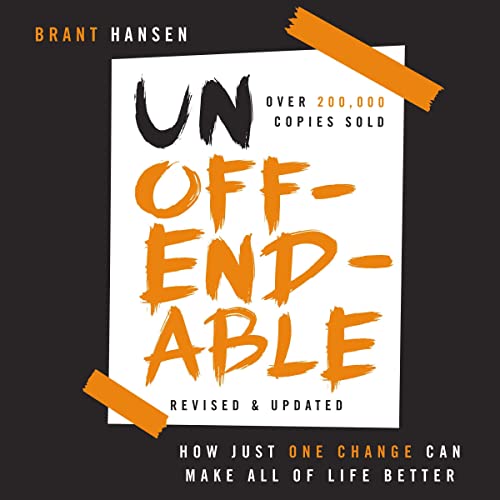Anger – What Do We Do With You?
During this past year many of us found ourselves simmering with stress and frustration. Perhaps these emotions even boiled over into unhealthy expressions of anger. News headlines and social media platforms seemed filled with examples. I found myself weary to see yet another outburst – it was exhausting. I longed for something different. Yet, I also found myself irritated with how quick I was to react to my own family while in close quarters or while engaging in conversation with someone over a controversial topic.
Considering these experiences, it can be easy to make inaccurate inferences about anger, what it is and what purpose it has in our lives – such that we seek to avoid it all together or, as culture is encouraging, embrace sinful expressions of anger as good. However, we are called as believers to seek ways to acknowledge and express anger at the right things and in a healthy and healing manner while guarding against the temptation to abuse this emotional response in our lives (Ephesians 4:26, 31). This can be uncomfortable and scary yet worth the journey as it deepens an awareness of ourselves and our connection with others, including God.
Anger is Normal.
God created man and woman in his image. One aspect of image-bearing is the experience and expression of emotions. It is important to remember, in and of themselves, emotions are not good or bad. Emotions serve a purpose and give energy to act or behave in our world. For example, when I feel sad, it is a way of recognizing something has been lost and it is helpful to seek comfort from others. Anger is one of many emotions you and I experience. Anger can vary in degree and intensity. For example, one may feel annoyance, or one may feel violent rage. While each are a type of anger, the felt experience and expression of such anger is vastly different from individual to individual.
God’s Anger.
Anger is an attribute of God, a part of his nature. Therefore, as a completely holy and righteous God, anger in and of itself, cannot be bad. However, a couple differences exist between God and us regarding anger and his expressions in Scripture. First, God is perfectly controlled which means God never acted out of control or without perfect understanding for the perfect purpose of his anger. In other words, he has never been controlled by anger but rather always has been in complete control when he experienced it. Secondly, God knows all things. This means God has never been wrong. God does not have “perceptions” – he only has perfect knowledge of what others did or are doing, thinking, and feeling. Thirdly, when God expresses anger it is always consistent with his love and mercy. Otherwise, he would cease from being a loving God. This is difficult for us to wrap our minds around, yet true.
The reality is when God expresses anger in Scripture, he is doing so for injustices or evil or as a response to Israel’s constant betrayal of their covenant (Judges 2:12-14, 10:6-7 or 2 Kings 13:2-3). He deeply desires relationship, and it pains him when things stand in the way of this relationship. While he is slow to anger (Neh. 9:17), he does express it. In his anger, God often turns people over to what they want or what they have chosen – ruin and death (sin) – but this is not his heart.
Our Anger.
The Bible never criticizes the anger of God but has plenty to say about the destructiveness of anger often expressed by humans – Proverbs 29:22 “An angry man stirreth up strife, and a furious man aboundeth in transgression.” We see unhealthy expressions of anger that stir up strife in ourselves, our church, community, and our nation. Anger can arise from several places – 1) we have limited facts and get angry over issues that seem “wrong” (not moral absolutes) but which we would view differently if we had perfect knowledge, 2) sinful self-interest is not met, 3) we feel threats to things we value which often leads to misinterpreting actions of others, and 4) injustice and evil done to innocent victims. Unlike God, we are limited in our perceptions and knowledge. Furthermore, when we do experience anger, we have difficulty with self-control – Proverbs 16:32 “He that is slow to anger is better than the mighty; and he that ruleth his spirit than he that taketh a city.” Realities like these can lead to unhealthy and sinful expressions of anger. This does not mean we should avoid anger altogether. Rather, by God’s grace, we should be willing to accept our own limitations as humans and learn from this emotion and our response.
Redemptive Responses.
Considering the realities above, experiencing and expressing anger is not comfortable. However, remember anger is not the issue, rather how anger is expressed. Anger is an emotion which provides us each with helpful information about our heart and relationships. The very purpose of emotions is to move us in some way – thus suppression often makes emotions worse and more intense which can lead to more unhealthy or sinful expression. Thus, we would do well to cautiously lean into and seek to find ways to respond to anger in a healthy and godly manner while “putting away” its inappropriate forms (Eph. 4:31). This is a lifelong process.
Here are a few ways to support healthy responses when we experience anger:
- Pause, take a few deep breaths, and create some distance between you and what is upsetting you.
- Consider changing your surroundings by going on a walk or getting fresh air.
- Read / Pray through Psalms that express anger or journal about your anger.
- Consider ways to accept and release anger appropriately– music, hot shower, exercise.
- Seek to challenge and let go of unrealistic standards or expectations for yourself and others.
- Seek to identify and share the emotions underneath anger (i.e., fear, sadness) with others.
- Be quick to apologize when needed.
In conclusion, experiencing and expressing anger is not new. While our tendency may be to avoid anger all together, God calls us to be salt and light to a lost world (Matthew 5:13-16). Is it possible one aspect of being a preserving and truth-loving agent of Jesus is by displaying a different and appropriate response to anger? Perhaps the self-control which a believer can demonstrate through the power of the Spirit will be a witness to others of the life-changing power available to all through Jesus.
To view the complete PDF, click here.
For Further Information:
Breaking Free From the Anger Trap
This link provides a series of online video sessions and worksheets to explain the dynamics of anger, how it is displayed (both positively and negatively) in a wide array of behaviors, and how to successfully address the inner tensions that feel like a trap. [MarriagePath]
Dealing with Anger [ACCFS]
This article gives you more information and resources concerning anger.
Dealing with Anger Podcast ![]()
In this episode series of Breaking Bread, Brian Sutter helps us understand the emotion of anger. He explains its purpose, how it works and how to live wisely in your own experience so that you might be slow to anger.
 The Anger Workbook
The Anger Workbook ![]()
Authors: Les Carter & Dr. Frank Minirth
This 237-page book offers a unique 13-step interactive program that will help you identify the best ways to handle anger and identify learned patterns of relating, thinking, and behaving in your life that influence your anger.
 Unoffendable: How Just One Change Can Make All of Life Better
Unoffendable: How Just One Change Can Make All of Life Better
Author: Brant Hansen
In this Unoffendable, you will find concrete, practical ways to live life with less stress, including:
- Adjusting your expectations to fit human nature
- Replacing perpetual anger with refreshing humility and gratitude
- Embracing forgiveness and beginning to love others in unexpected ways





Comments
Leave a Comment